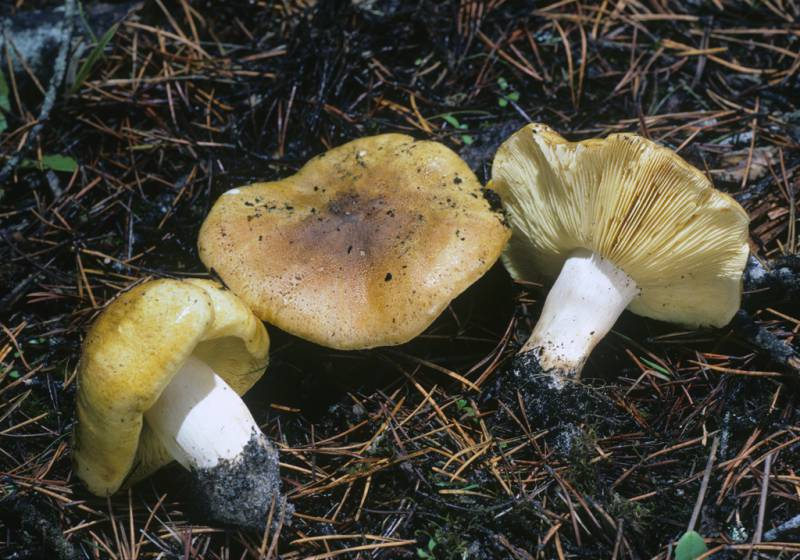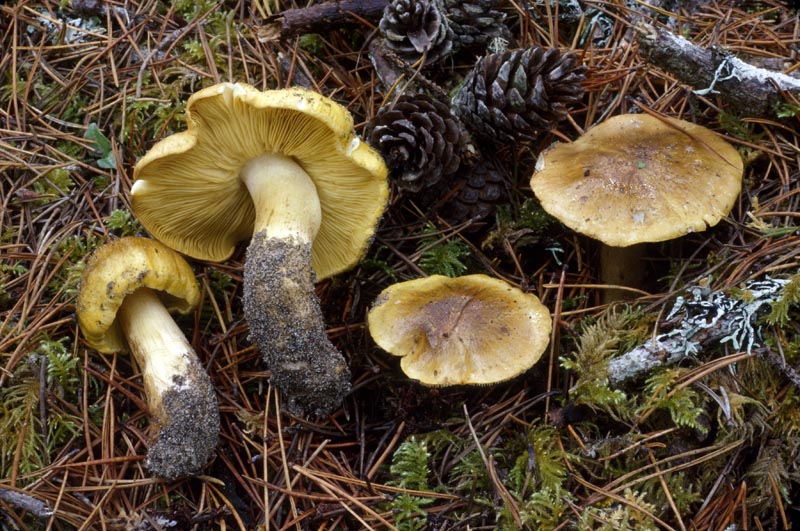Distribution: Broad
Habitat: Mostly under pine
Conservation Status: Not of concern
Edibility: T. flavovirens generally is considered a good edible species in North America, but reports of fatal poisonings by T. equestre (Linnaeus: Fries) P. Kummer, a very similar (or possibly the same) species in France, suggest caution is in order.
T. flavovirens generally is considered a good edible species in North America, but reports of fatal poisonings by T. equestre (Linnaeus: Fries) P. Kummer, a very similar (or possibly the same) species in France, suggest caution is in order.
Tricholoma flavovirens is a distinctly colored fungus and one of the easier tricholomas to identify. Its stipe and gills are bright yellow; the cap also is yellow, at least near the edge, and usually grades to orange-brownish in the center. The cap may be viscid at first but, if so, soon becomes dry, so a quick touch with the tip of your tongue may be necessary to detect the stickiness. T. flavovirens occurs scattered to gregarious most often under pine, but with other conifers and aspen as well. It is one of the commonest species in the shore pine stands on old sand dunes along the Oregon coast. Molecular data suggest to some mycologists that we have more than one species going by the name T. flavovirens along the West Coast, but no directed studies have been conducted to follow up that notion. T. sejunctum and T. sulphureum are other yellow tricholomas that could be confused with T. flavovirens---the former has black or dark brown radiating fibrils on its cap and the latter has an unpleasant coal gas or heavy floral odor.
PNW Herbaria: Specimen records of Tricholoma flavovirens in the Consortium of Pacific Northwest Herbaria database
CalPhotos: Tricholoma flavovirens photos





